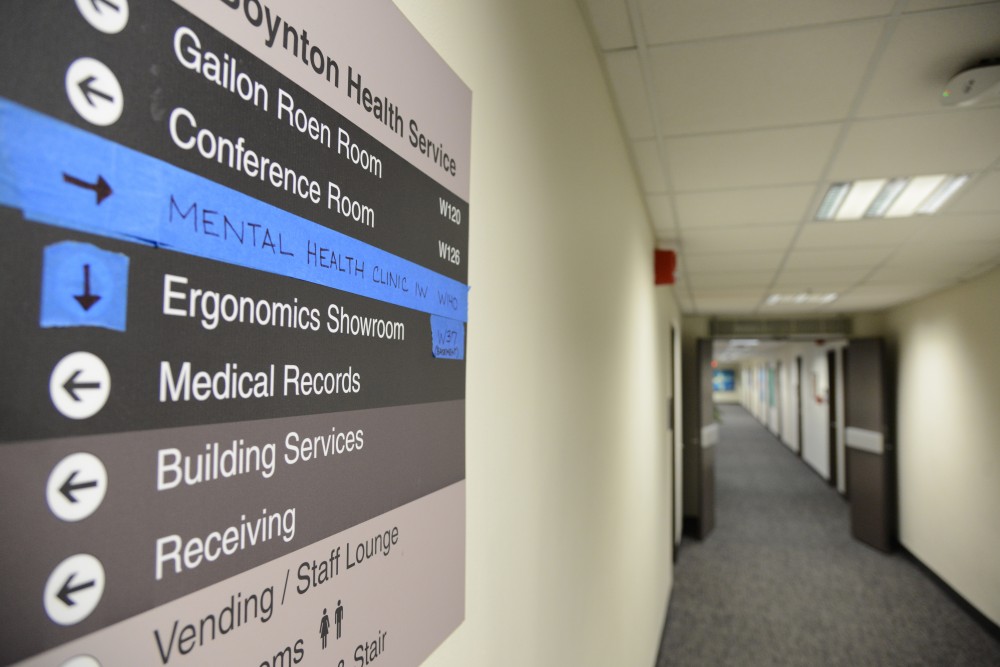Guided by ongoing talks about campus mental health, the Boynton Health mental wellness clinic at the University of Minnesota saw more traffic than last fall.
The clinic reported an 18 percent overall rise in traffic from Sept. 5 to Oct. 9 compared to the same time frame in 2016. Brief and urgent clinic visits are up 14 percent.
“We’ve seen a steady increase in demand every year, and that probably reflects a number of different factors,” said Gary Christenson, Boynton’s chief medical officer.
According to Boynton mental care experts, these trends are not unique to the University of Minnesota.
“There is less stigma, there is more stress, there is more anxiety … there’s a lot of factors contributing to create the demand that we’re seeing,” said Matt Hanson, assistant director of mental health at Boynton Health.
After a physical expansion in spring 2017, the mental health clinic nearly doubled its space and added four new therapists and one provider, which may have contributed to this fall’s increased traffic, Christenson said.
“It doesn’t necessarily explain why they’re coming in, just that we have a greater capacity to help them when they get here,” Hanson said.
The clinic developed a case manager position this fall to help students find care for unique cases at community clinics after seeing an increase in off-campus referrals.
“We have been referring more students off campus, but never felt very good about that because we just don’t know fully where they were going,” Hanson said.
Student Counseling Services, or SCS, partner to Boynton Health for student mental wellness counseling, added a diversity liaison counselor position in June, which was filled by Nina Hernandez Beithon.
“Her position has been developed specifically to serve students from diverse, wider backgrounds … to look at any specialized or specific needs of those populations of students across campus,” Christenson said.
The position reaches out to students who may not come to student counseling services or the mental health clinic on their own.
“We’re really working on building relationships and going out to where students are already connected … specifically for students with historically underrepresented identities,” Hernandez Beithon said.
Christenson said he hopes the position will help reshape services at SCS and Boynton after the new liaison defines specific needs of some students on campus.
“We are really hoping to continue expanding our support and working directly with diverse student communities,” said Glenn Hirsch, director of Student Counseling Services. “I would love to see more staff positions devoted to this.”
More students are coming to college with the expectation that, at some point, they will participate in mental health counseling, Christenson said.
The Minnesota Student Association highlights preventative care in its plan for this year’s mental health outreach programs.
“About a third of our students or more have a mental illness diagnosis,” said Leslie Kent, health and wellness committee director. “I think more conversation needs to be about de-stressing and managing their stressors so it never gets to the point of mental illness.”
MSA is looking to develop peer-to-peer mental health resources as well as helping University departments promote self-care in their finals season advertising campaigns.
“I personally am particularly interested in making mental health a public health issue,” Kent said. “We are of looking at ways we can change the environment of the entire University community to support mental well-being.”








